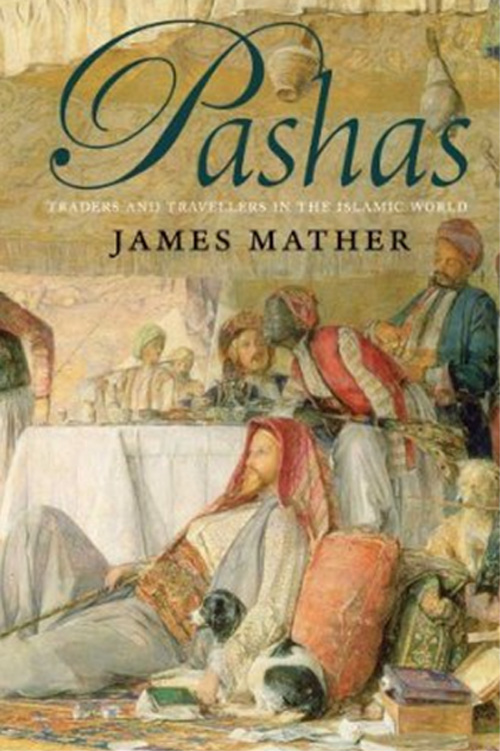Pashas: Traders and Travellers in the Islamic World
Review

Pashas: Traders and Travellers in the Islamic World.
James Mather. Yale University Press. 2011, 302p. ISBN: 978-0-300-12639-6. £12.99
At a time when much attention is focussed on events in the Arab world, the issuing of James Mather's 2009 book in paperback format is very appropriate. He deals with the neglected history of the Levant Company, which started organised English trade with the Middle East in the reign of Elizabeth I. Their influence lasted well into the 19th Century. The men who traded with this area became known as ‘Pashas'. The dominant power, which then controlled much of what is now known as ‘The Middle East', was the Ottoman Empire, a Muslim state. James Mather has conducted detailed research into the history of these traders in silks, spices and precious metals and how they related to the Ottomans, whose power base was Constantinople (modern Istanbul). The author stresses the desire for trade by the Levant Company, rather than ideas of conquest. In pursuit of this, the ‘Pashas' respected local customs and did their best to fit in with the prevailing atmosphere. Many adopted oriental dress, as shown by some of the illustrations in the book. Although forbidden by the Company to bring women, inevitably some merchants did, or enjoyed the companionship of local females.
The book is divided into studies of the trading communities of Aleppo, Constantinople and Alexandria. There are also useful references to places such as Smyrna (modern Izmir), Damascus and Jerusalem. Mather has produced an excellent book, based on very careful use of documents and sources. Links with the development of British India and the general decline of the Ottoman Empire are well made. There are many good illustrations from the period and it is a useful lesson in how successful trade, tolerance and co-operation can be, rather than recourse to arms, with its uncertain outcome. This book, about a less well-known aspect of history is thoroughly recommended.

